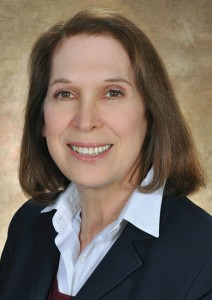by Dave Workman | Senior Editor
Billionaire former New York Mayor Michael Bloomberg has put up $50 million for a so-called “grassroots” lobbying group he calls “Everytown for Gun Safety” to lobby for more restrictive gun control, but well-known Second Amendment expert and law professor Joyce Lee Malcolm has a better idea.
“If you really want to do something constructive to improve public safety,” she suggested recently in an exclusive interview with TGM, “concentrate on doing something about gang violence.” Malcolm, author of Guns and Violence: The English Experience and To Keep and Bear Arms: The Origins of an Anglo-American Right, said that research has indicated that about 60% of all homicides today are connected to gangs. The first book, To Keep and Bear Arms, will apparently be coming out in a leather-bound edition, she said.
She also said that none of the measures so far suggested by President Barack Obama and Attorney General Eric Holder will accomplish anything.
Even the measures that are being taken to provide services to the mentally ill are raising concerns, she noted.
“The health community is worried that people won’t come to them,” she said. “They are concerned that they will be reported.” Looking specifically at people who commit mass murders, Malcolm said that those who are “truly mentally deranged” haven’t gotten help, even when their families knew about their problems. Changes in mental health laws have made it tough, if not impossible, to get such people committed.
This problem began when the nation shifted away from institutionalizing the mentally ill, she suggested.
Malcolm, who has appeared at the annual Gun Rights Policy Conference sponsored by the Second Amendment Foundation and Citizens Committee for the Right to Keep and Bear Arms, had some unkind words about the gun laws that have been proposed or enacted in recent years, particularly after the Sandy Hook attack in 2012.
She said such schemes are “clearly only to harass and disarm law-abiding people.” As far as “universal background checks” and gun registration are concerned, Malcolm cautioned that these measures can be “so misused.” She pointed to neighboring Canada as the prime example of gun control extremism gone bad.
“The personal things they wanted to know,” she recalled of the now-rejected system instituted about two decades ago, “it was all designed to put people off and they admitted that, and it was really invading people’s privacy.
“They pass these things,” she added, “then see they have to have something else.” Another example on US soil is New York City. There, Malcom noted, the cost of a gun permit is very high.
“In order to keep people from having guns,” she commented, “they charge an enormous amount of money to go through the (permitting) process in New York City. In the rest of the state, it’s $10. For people who claim they don’t like the inequality, it’s the one percent of people who can afford it. But everyone else can’t. It can be made pretty punative. They are desperately trying to price the thing out, make it (with) more and more hurdles; take training, go to a range.
It is one thing after another to make it more time-consuming and more expensive.” This is essentially how gun control becomes a piecemeal erosion of privacy and gun rights, Malcolm warned.
“It sounds sensible but it isn’t really,” she said.
The Canadian system, which was scrapped with a change in government, was the definition of a boondoggle.
Initially estimated to cost about $2 million, the system began bleeding money to the point that it ran over $1 billion and really had little effect on crime.
“If only they had spent that money on police,” Malcolm remarked.
The licensing and background check plan turned into a fiasco.
“The guys shooting up the streets don’t go through background checks,” she observed.
As for the British experience, she said citizens in the United Kingdom have been learning the hard way that “even with a professional police force they can’t protect everyone all the time.” “You have to protect yourself,” Malcolm said.
But in Great Britain, the law makes it virtually impossible to fight back. Self-defense has literally been criminalized to the point that “if you hurt a burglar, you can be prosecuted,” she said.
“They force people to be potential victims,” Malcolm explained. “There’s no way a police force can protect everybody all the time.” And that understanding is at the core of the Second Amendment and how citizens look at the right to keep and bear arms today, she intimated.
“Your most basic right is self defense,” she stressed. “The most basic right of all is the right to protect life and limb.” A resident of Alexandria, VA, Malcolm once lived in Massachusetts, and she observed a considerable cultural difference about firearms, liberty and responsibility by simply crossing the border into New Hampshire. There, she said, people have “a very different attitude.” Today, Malcolm matter-of-factly rejects the blame-game in Washington, DC, where they contend that the violence is at least partly because of guns coming into the city from Virginia.
“But Virginia doesn’t have a problem,” she remarked.
Malcolm has been keeping busy.
She recently did an essay for a book commemorating the 800th anniversary of the Magna Carta. That book will be out this month (August) and her chapter deals with America.
She is also writing a biography of Benedict Arnold, a project that is almost certain to stir up controversy among historians, and anyone who studied Revolutionary War history.




